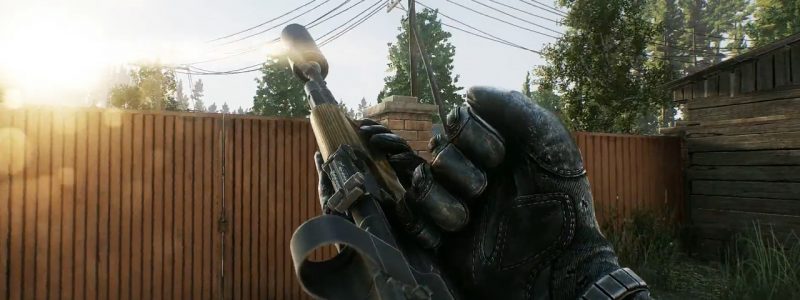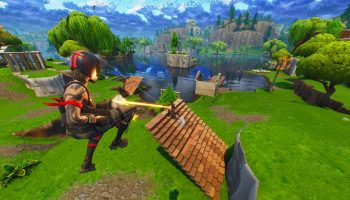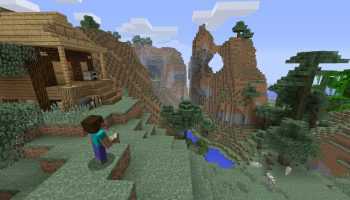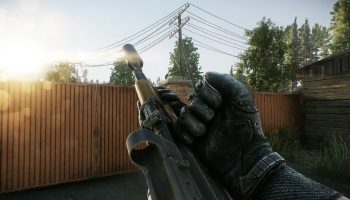TL;DR = Say what the plan is, stick to it, filter callouts carefully, keep your positions and conditions clear. Lessen the amount of questions asked in raid.
After playing in duos, 5 man squads, solo, and watching others gameplay, I've noticed how varied everyone's communications/callouts are. Some are real talkative, but don't callout vital information, and some are quiet and constantly update their team of their movements and anything they see. I felt as though players often would get frustrated at each other over not being able to discern who made what noise or where their teammate is moving to. So, I decided to try and make a general guide on what I think players should do and not do when playing with their buddies and have the goal of getting out alive, or at least not dying to friendly fire, in terms of communication and working as a team.
This guide is intended for beginner/mid level players and those who might be unfamiliar with communicative heavy playstyles. Some of this info might seem obvious, but it's best to cover all the bases. Of course, how you communicate with a rando you LFG'd with vs. your best mate will be different, but these should be basic guidelines, not protocol.
Let me know how you communicate down below, it would be interesting to hear your problems or your own way of communicating with your fellow PMCs.
I'll be using Customs as the example map, as it's most likely the easiest to understand for many.
1. Have a plan, and make sure everyone knows and follows it.
This is a really basic concept that I'm sure every player applies when they start up a raid, one way or another. Usually along the lines of "I have to do this quest, so we'll go here and do stuff along the way." Players will probably have a route in mind, which is the 1st step in a clear plan. Don't just say "We'll loot and go past fort." That's vague, and will lead to questions of asking where the next position to take will be.
A plan should sound like this:
"We'll loot red warehouse, go across to loot med building, run past the construction site (fortress), and try to extract at the old gas station, if not we'll push past the railroad and onto the next extract."
This plan needs to be in everyone's mind when they start the raid. No one should be asking where to go to next unless something hinders you're plan (which will happen at some point).
2. If you have a change of plans, SAY THEM!
This doesn't mean "we'll go this way", assuming they will always be on your ass and follow you like ducklings. Tell them where you're all going, and explain quickly why. For example, your squad's goal is to get some action and PMC kills. You've cleared out Dorms without anyone in sight, and you have about 40 mins left in the raid. You determine from the shots you heard at the military checkpoint that some PMC's might've stayed around that area longer, possibly looting the buildings around the Silos and making their way along the main road. You don't tell your team "Follow me, we can get kills this way", you should tell them "We'll cut off the players that are probably coming from the military checkpoint at Gas Station." This will give a better idea to the rest of your squad where they should position themselves. Speaking of positioning…
3. Avoiding "Is that you?" being your final words.
This always happens. Your buddy pushes in front of you, and you wait for him to clear. You don't see where he went exactly, so you assume he went straight down the hallway. You see someone peek out of a room, you aim, you say "Is that you peeking?" and before he says "no" your brain is splattered on the wall by an M80 round.
Situations like this can be even more difficult for bigger teams, and this is where players tend to go back to duos or solos because of the frustration from inconsistent comms. Although there are visual ways of identifying your teammates, either by remembering their gear or using armbands, these methods aren't reliable. Being the first to the draw will always be your instinct, so its best to reassure your team that you won't be the one in front of them when they get that instinct.
The solution? Simple. Say where you are and where you're going. Too many times have I had a teammate rush in front of me without saying anything, or come from a different angle without uttering a single syllable. It's easy for mainly solo player to forget to say things, but it's a bad habit. Callouts need to be made when you feel (or know, if they are further behind) that they aren't aware of your position. For example: "I'm at the forklift, going up to green screen." This gives your teammates the ability to predict your movement, and rule anything otherwise as possible hostiles.
Remember, your main goal when it comes to communicating should be to lessen the amount of questions asked within a raid.
If your teammates know where you are, they don't need to ask, and they don't need to hesitate when a tourist enters their crosshairs.
4. Kill, Identify, Report.
When a confirmed enemy (you should know this by applying the knowledge above) is in clear view, of course, shoot him. It's a misconception that you should report and then kill what is an easy target. Again, it's the first to draw. Be the one on top.
However, your teammates will definitely want to know what the hell you're shooting at. If you manage to get the kill, tell your teammates what it was and their condition.
"Killed a PMC at the hole in the wall" works perfectly as a callout. Your teammates know what you were shooting at, where the body likely is, and where they might need to keep an eye on if the poor sap had friends.
In the situation you spot a hostile, but can't get a pin on them, tell your team immediately of their location and their movement. It should be obvious that callouts like "by the rock" or "behind the building" are vague, so do your best to associate landmarks and triangulate their position. If your teammate in this case is looking the same direction as you, telling them that the enemy is moving from right to left or going up to something is a helpful bit of information. They might look towards the landmark they're going up to, and assuming they know how map movements work (highly recommend you learn that as well), will be able to predict where the enemy is going to and prepare their crosshairs to meet their path.
5. Learn the directions.
It's alway helpful to call directions accurately, quickly letting your squad hone in on the threat.
You could use the compass provided to you in game, but let's be honest, who uses the numbered degrees on the compass anyway? In games like PUBG, the compass is always shown, along with the degrees. In Tarkov you have to flip it out and look in the direction of the enemy to give an accurate reading, along with your buddies also flipping out their compass to know what direction your talking about. That time can be spent aiming and taking shots, so instead, learn the normal compass directions. Now, it might be confusing if you use the compass on each map and try to learn that way, as each maps directions with one another are different. So, instead use landmarks as the general direction and go from there. For example, Dorms is north, Fort is South, Red is West, and Silos is East. It won't be accurate to the compass, but it gets the job done when everyone can associate the same directions.
6. Keep an eye on your own condition.
After, or during, a firefight, there will be wounds to attend to. You should of course call when you're healing, but you should also say your own condition. A scav shooting your arm to half health will be a one and done heal, might not even need to call it since it's so miniscule.
A PMC unloading an entire mag across your entire body?
That will take time to get fixed up, and your teammate should be told about that fact.
Staying healthy also means food and drink. Dehydration and energy deficiency at the time of writing this has been drastically turned up, and you'll most likely end the raid with 20 or 30 in each. If you find food or drink, spread it around.
7. Sound is everything.
This is especially true in CQB, as the sound of a person reloading or using a med can allow for an opportunity to turn the tide, and also gain intel on their whereabouts. However, this can also lead to confusion if its not communicated correctly. I'll also go ahead and address that sound in Tarkov is currently very finicky. Sometimes you won't be able to tell whether a player is above or below you, so you'll need to cover the angles to prepare for whatever outcome.
Anyway, back to that confusion part. If a friendly mindlessly sprints around without saying a word, teammates might assume a enemy player is about to rush into them. They'll ask if it's them doing that, and people will start getting confused and question every sound they hear. So, if you need to hear for someone else's movement, it might be a good idea to slow your pace or to stop and listen. Callout movements, and your teammates should reposition to a better view of the incoming angle and looking towards the sound they might not have heard or acknowledged without your callout.
—————————————————————————————————————————————————–







